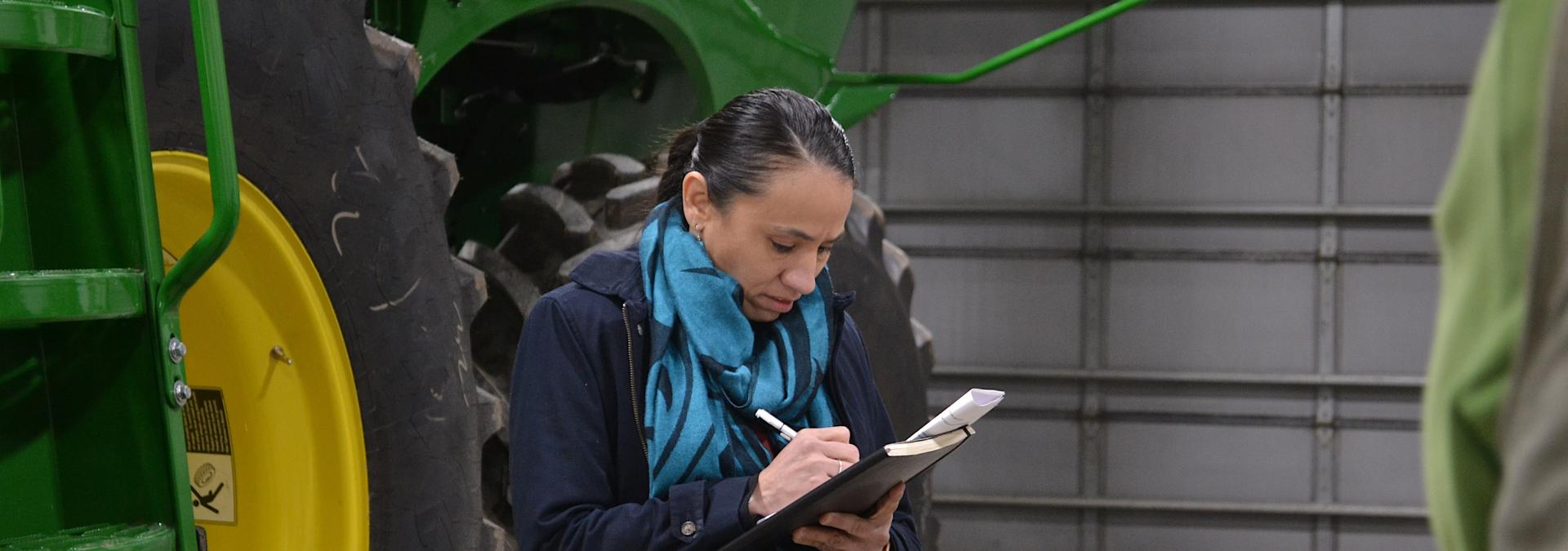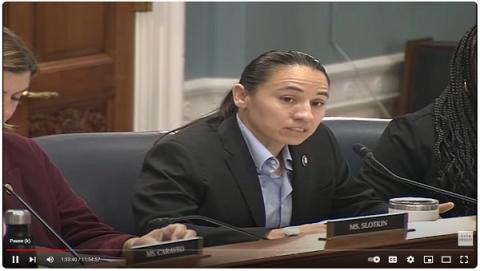Davids Statement on Farm Bill: “We’re Almost There, But Today’s Bill Can’t Pass Congress”

Yesterday, during the U.S. House Agriculture Committee's mark-up of a Republican-drafted Farm Bill reauthorization, Representative Sharice Davids commended several initiatives aimed at strengthening Kansas' agricultural economy, but voted against the bill as it pits farmers against families and has no realistic pathway to becoming law. As she did last week, Davids emphasized the importance of returning to the bipartisan negotiations that have historically shaped the Farm Bill, rather than advancing an unpassable bill that offers farmers false hope.
“Kansas farmers and ranchers are the backbone of our nation, providing food and resources to people at home and around the world. While today’s bill includes many great provisions to support those producers, such as strengthening crop insurance and improving agricultural research, it provides false hope to our farmers and would push Kansas families, children, and seniors into hunger,” said Davids. “To truly support Kansas’ agricultural economy, we must put Kansans first, stop playing political games, and promote a broadly bipartisan Farm Bill that can realistically make it across the finish line. There are many provisions in this bill we all agree on, which is why I remain optimistic. I am committed to upholding the Kansas tradition of bipartisan agricultural policy, following the example of former Senators Pat Roberts and Bob Dole, to craft a Farm Bill that enables Kansas farmers and families, from Garnett to Goodland, to thrive.”
WATCH: During yesterday’s mark-up, Davids shares her thoughts on the Farm Bill reauthorization

Earlier this year, Davids hosted former U.S. Senator Pat Roberts, Chair of the Senate and House Agriculture Committees, and other policymakers to discuss the successes and challenges of Kansas’ farmers and producers. Roberts made clear the need to put politics aside and agree on a compromise to support farmers, ranchers, and producers.
While Davids acknowledged that today’s Farm Bill has no realistic path forward, she endorsed many policy provisions as a victory for Kansas farmers, ranchers, and producers. Certain priorities, which Davids outlined in a letter to U.S. House Agriculture Committee leadership last year, were included in the text. This included protections and updates to crop insurance programs that provide backstops to farmers amid unexpected events, support for research funding to improve the resilience of our country’s agriculture sector, support for land-grant institutions that foster agriculture innovation, and investments to construct and maintain agriculture research facilities. She will continue working with her colleagues from both parties on a bipartisan bill containing these provisions that can pass both Chambers and be signed into law.
Davids’ concern with today's bill, along with its inability to become law, and certain provisions that roll-back climate-smart initiatives that enable farmers to remain resilient and profitable, is the reduction in the Supplemental Nutrition Assistance Program (SNAP). This marks the most substantial cut to the program in nearly three decades. In Kansas’ Third District, 10,879 households rely on this vital food assistance program to ensure nutritious meals for their families. The proposed legislation would strip $130 million from Kansas’ SNAP budget, pushing more families with children, seniors, and disabled individuals into hunger.
To ensure the Farm Bill works for Kansas producers, during yesterday’s mark-up, U.S. House Agriculture Committee Chairman Glenn Thompson agreed to collaborate with Davids on two key provisions that Kansas agriculture professionals have highlighted. First, they will work together to improve the Farm Service Agency (FSA), which plays a crucial role in supporting the agricultural sector by administering farm commodity, credit, conservation, disaster, and loan programs. Second, they will ensure Kansas wheat growers can both protect their soil from erosion and sell their crops for profit.
To prepare for the Farm Bill reauthorization process, Davids embarked on a Farm Bill listening tour visiting a poultry and livestock operation in Anderson County, a co-op in Franklin County, a goat farm in Miami County, an organic vegetable farm in Johnson County, and an educational community farm in Wyandotte County. Davids also toured a Garnett-based renewable ethanol producer, participated in FFA activities at Spring Hill High School, served a school lunch at Black Bob Elementary in Olathe, spoke with industry leaders on financial support programs for farmers, and toured a dairy farm in Garnett.